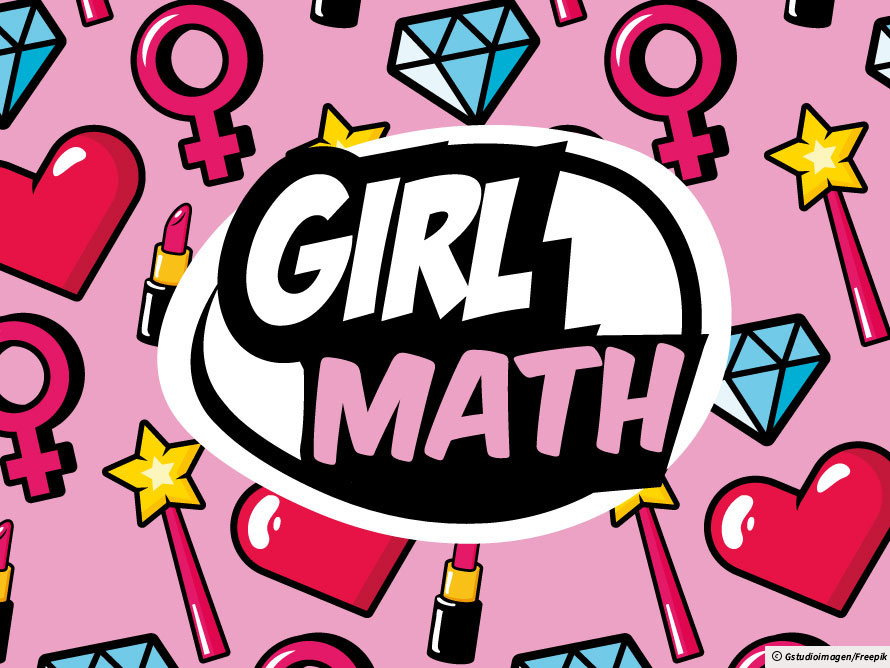A quick search of TikTok will unearth thousands of posts with the hashtags #girlmath and #justagirl. Maartje van Doodewaard, 16, from Chatsworth International School, urges you to think before you post.
Girls are emotional, girls are immature, girls are weak, girls are irresponsible, girls are dependent.
These misogynisticStrong and deeply ingrained prejudice against women. stereotypesStereotypes are ideas about how people will act, based on the group to which they belong. are enthusiastically reinforced by women themselves through social media trends. Girl dinner, girl math, just a girl, that girl, are all examples of trends with hundreds of videos on multiple social media platforms like TikTok and Instagram. In the “just a girl” trend, people post videos with e the song Just a Girl by No Doubt in the background, whilst portraying bad driving skills or showing how they can not do activities because they are “just a girl”. So why do funny jokes and videos about girlhood online matter so much?
Girlhood online is portrayed as something beautiful, pink, glamorous and cinematic. As pop culture and media is a way to construct one’s identity, this is also the case for women trying to reclaim their lost femininity. But is it only trying to reclaim lost femininity — or does it reinforce conservativeHolding traditional values, and in a political context, favouring policies such as private ownership. ideas based on gender stereotypes while women willingly infantiliseTreat like a child. themselves?
Infantilising is to treat someone as a child and deny them of their maturity in age or experiences. So is calling yourself a girl at an adult age infantilisation? A “girl” implies you are immature, innocent and irresponsible, whilst a woman is not. Men are not called boys; if you do it disrespects their authority and their manhood. Women in contrast to this are forever girls regardless of their age and the social context. This reflects society’s beliefs that are deep-rooted in conservative misogyny.
Just A Girl by No Doubt was released in 1995. It discusses stereotypes such as bad driving, lacking knowledge and being susceptible to consumer propagandaInformation, which may be biased or misleading, used to promote a certain viewpoint. . These misogynistic stereotypes infantilise women. Yet in an interview with The View in 2019, the lead singer Gwen Stefani said the whole song is sarcastic and not meant to be taken literally. The song’s main message is about becoming a woman and no longer being “just a girl”. It is now pretty ironic and ridiculous that the message of the song is completely ignored and taken literally by thousands of people on social media.
Nowadays, in a time of consumerism and capitalismA form of economy characterised by private property and competition between companies., femininity is portrayed as an identity to purchase. You can find examples in the beauty industry and the media — from the “defined trait” that women love to shop to the “girl math” trend.
The “girl math” trend portrays the stereotypes that women are less capable in math and must justify their spending in front of their husbands. This encourages infantilisation of women because they are once again, “just a girl”.
The main problem with the whole media trend is that women are not “just a girl”. It is associated with incompetence and unintelligence, so yes it is misogynistic. Women should grow up and stop infantilising ourselves and embracing internal sexism.
We are not “just a girl”. We are women capable of so much more than being just a girl.
Interested in submitting your own Student Voices article or video? Find out more here.
Keywords
Misogynistic – Strong and deeply ingrained prejudice against women.
Stereotypes – Stereotypes are ideas about how people will act, based on the group to which they belong.
Conservative – Holding traditional values, and in a political context, favouring policies such as private ownership.
Infantilise – Treat like a child.
Propaganda – Information, which may be biased or misleading, used to promote a certain viewpoint.
Capitalism – A form of economy characterised by private property and competition between companies.
Cite
While every effort has been made to follow citation style rules, there may be some discrepancies. Please refer to the appropriate style manual or other sources if you have any questions.














